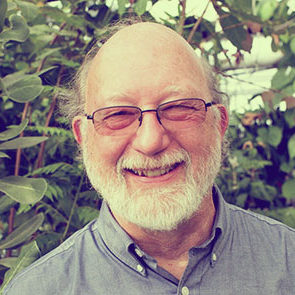
Dennis McKenna, brother of Terence McKenna, is a true psychedelic elder. Among his many engagements and accomplishments, he has conducted research in ethnopharmacology for over 40 years, is a founding board member of the Heffler Research Institute, and was a key investigator on the Hoasca Project, the first biomedical investigation of ayahuasca. Since 2019, he has been working with colleagues to manifest a long-term dream: the McKenna Academy of Natural Philosophy (https://mckenna .academy) dedicated to the study of plant medicines, consciousness , preservation of indigenous knowledge, and a re-visioning of humanity’s relationship with Nature. Dr. McKenna is author or co-author of 6 books and over 50 scientific papers in peer¬ reviewed journals. He emigrated to Canada in the spring of 2019 together with his wife Sheila, and now resides in Abbotsford , BC.
Colloquium Presentation: 21 October 2022 – 6pm (speaking online)
Psilocybin and the Origin of Consciousness – A re-examination of the ‘Stoned Ape’ Hypothesis
Abstract
Dennis McKenna presents an exclusive lecture discussing brand new reflections, theories, and findings on the so-called ‘stoned ape’ hypothesis. The theory was first proposed in 1992 by Dennis’ late brother Terence McKenna, 20th century ethnobotanist and psychedelic bard (1946-2000) in his 1992 book Food of the Gods. Emerging from conversations between the two brothers, the theory proposes that the consumption of psilocybian fungi played a crucial role in the evolution of consciousness and the development of the human mind, self-reflection, language, and culture, catalyzing the rapid evolution of early hominid species into modern Homo sapiens over a relatively short evolutionary span of some two million years. This accelerated evolution was characterized by an exponential expansion in the size and complexity of the human brain, and this is reflected in the fossil record. This has been characterized as the ‘stoned ape hypothesis’ by its critics but the hypothesis is deserving of a somewhat more considered examination, particularly in light of new data that were unknown to science in 1992 when the hypothesis was first proposed.
With the re-emergence of psychedelics in mainstream culture and the wider dissemination of the theory into the social media meme sphere, how does it stand 30 years on? What new hypotheses and perspectives have developed from the theory with the increase of psilocybin research? And with the rise of psychedelic research and interest, are we any closer to solving the ‘hard problem of consciousness’?